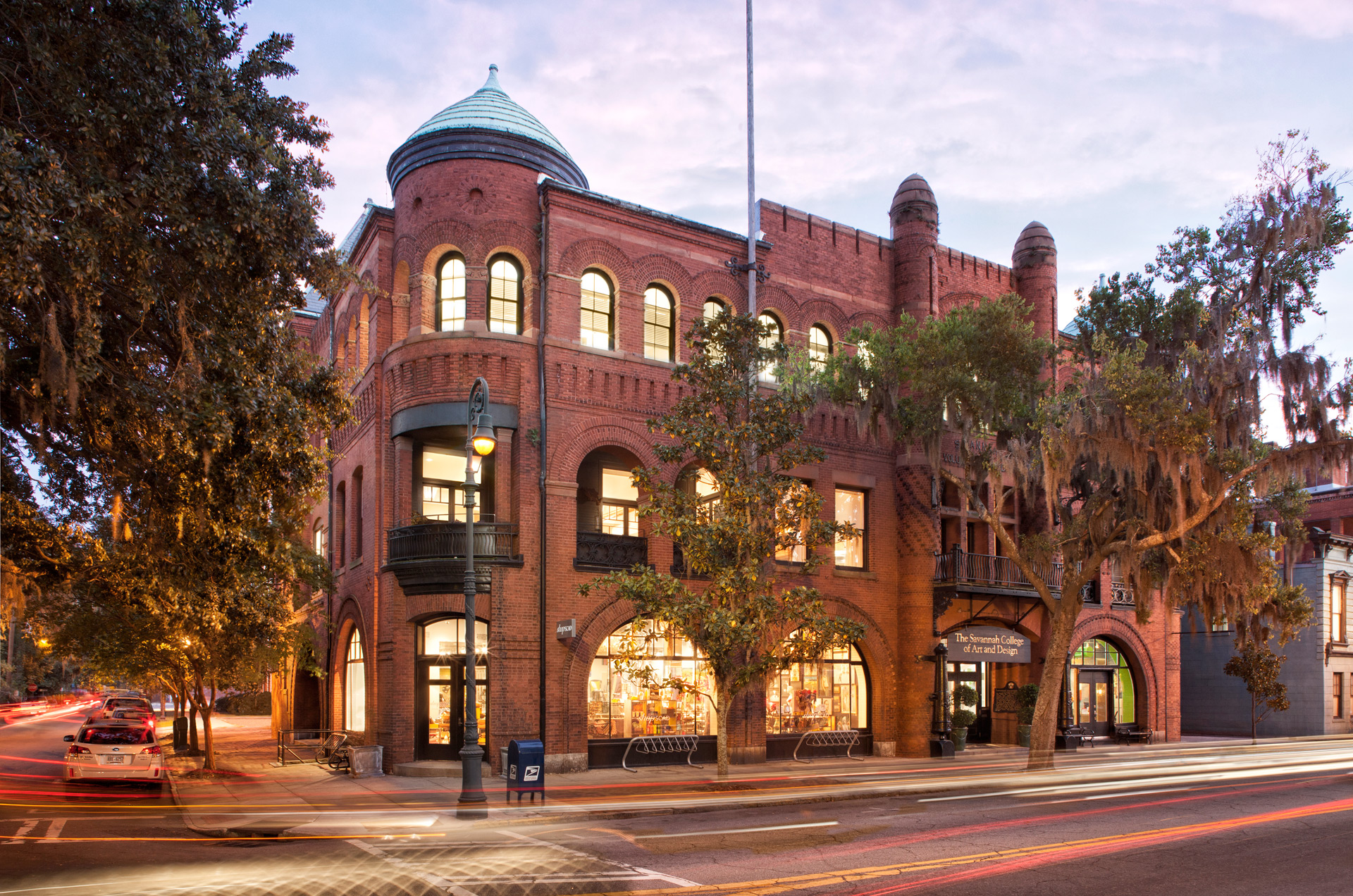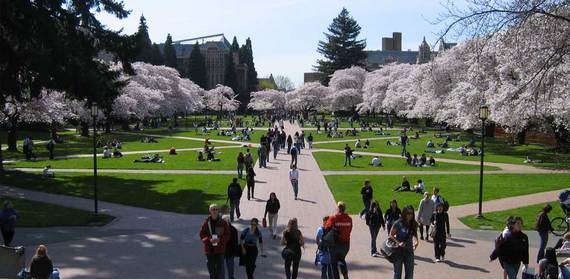Campus Size Matters
Ultimately, the same things that attract you to a small campus as a freshman will be the reasons you get bored of it as a sophomore.
By Maria Alvarado, Savannah College of Arts and Design
When I was applying to college, campus size was one of the characteristics that, in my opinion, was extremely relevant to my final decision.
I had lived in a big city all my life and knew that getting around traffic and dangerous neighborhoods could be a nuisance, especially if you were new. I also knew how improbable it was to casually run into someone from school, work or any other place in common.
As a result, for college, I wanted what a lot of people want—a community.

Being part of a campus community is a big part of the college experience. Not only because you get to meet people that may become important later in your life, but also because you get to meet people with common interests and feel less alone. Communities also allow people to have a support system that they trust to help them in times of need. These are important things in the life of college students all around the country.
Small or rural towns always look amicable and colorful in their tourism flyers, and the impression is always that their small size makes finding friends and staying close to contacts simple. Small towns that are mostly composed of college students also guarantee that hanging out or running into each other will be easy. So, even if there’s no time to grab coffee in the local coffee house, students can always enjoy walking together to class or the library.
On the other hand, big cities are often viewed as cold and unforgiving. Whether it is because of the size of the skyscrapers or the fast pace of everything that lives in them, they certainly have earned the reputation of not being nice places for those who like human interaction. Similarly, college campuses based in cities like New York City, Chicago or Los Angeles are constantly surrounded by articles or reviews that mark them as “insecure,” or claim that “the university doesn’t do anything for your safety.”
Luckily, the college that I chose to attend has three different campuses in three contrasting locations. After doing enough research and asking people for their experiences with the three campuses, I was left with the impression that I would enjoy living in the small one (Savannah) more than living in the capital (Atlanta).
Also, the city seemed to be filled with scary and bizarre stories that did nothing but assure me that living in a small, historic campus would be a better experience. I remember, in particular, the story of someone getting shot in the leg while making a quick trip to a close-by convenience store, calling the school for help and getting told that they should have called the police instead.
Even though it may sound likely that a rural town will be safer than a city like Chicago or Atlanta, the truth is that population size doesn’t always reflect crime rate. This means that someone could choose to go to college in a small town in Indiana and still get mugged more often than they would in a metropolis.
Moreover, it is highly unlikely that a college campus in a big city won’t provide their students with security and help them when they are in danger. For example, most colleges nowadays offer “safe rides,” a service that provides students an alternative to walking home late at night, in the dark and alone.
Let’s say that for some reason someone is stuck working late in the library or is stuck in a mall that has closed and has no way to get back to their residence. In this case, the student may call the safe ride line of their school and ask them to come pick them up and take them home.
Skeptics might ask, “How effective can a safe ride or security officer be on a campus that is so spread throughout the city?” Yes, the immensity of the place and the amount of people in it can be a little suffocating. But, is it really as bad as people make it seem?
During Hurricane Matthew, my school evacuated my small campus and sent its students to the shelter they had prepared in their city campus. It was the first time I actually had a chance to explore Atlanta and closely observe the differences between the campuses. The evacuation lasted almost a week, which was enough time to allow me to grow attached to life in the city and, eventually, regret having to go back to the small campus.
At the beginning, walking through the campus seemed like an impossible task, because the distance between the buildings was so vast. However, after a couple of days, everyone who had evacuated with the school already knew the local hotspots, landmarks and had visited at least two of the school buildings.
There was never an instance in which I felt unsafe, because every five minutes I would see one of the university’s security cars pass by my side or walk through a park with a flashlight. At the same time, there was nothing that made me feel that the college community was less existent than the one back home.
On the contrary, the students from the city campus seemed to always be looking to work together and meet new people.
Ironically, my actual college campus is so small and the workload so big that people only seem to talk and interact with people that are in their major.
The size of the town has also proven to be no help in avoiding danger, as walking home after midnight, alone and in the dark in a small town, is as bad of a decision as doing so is in a city. It’s also now evident that there are few things to do for fun in a town that is so small, which is a real bummer when weekends are free of homework.
Do I regret choosing a small campus? Yes. Even though I understand why people perpetuate the stereotype of the city being harsh, in reality it is impossible to assure that a rural town will always be safer than urban areas. After all, crazy things happen everywhere.
In my opinion, the best thing to do when universities give the option to choose between campuses is visit the city or town and make sure that you are happy with the way things work there. Talking to people who live there and are positive about their college experience will also make a difference. Talking to people who don’t like their college or constantly ache to go home is definitely not something that should contribute to the final decision.
Of course, if your dream college doesn’t give you the option to choose between living in a metropolis or a farm town, I guess there isn’t much you can do about it. The place where you want to go to school, campus size and the vibe can be relevant aspects in your college decision. Still, you should never turn down a great college just because you don’t like the city.











